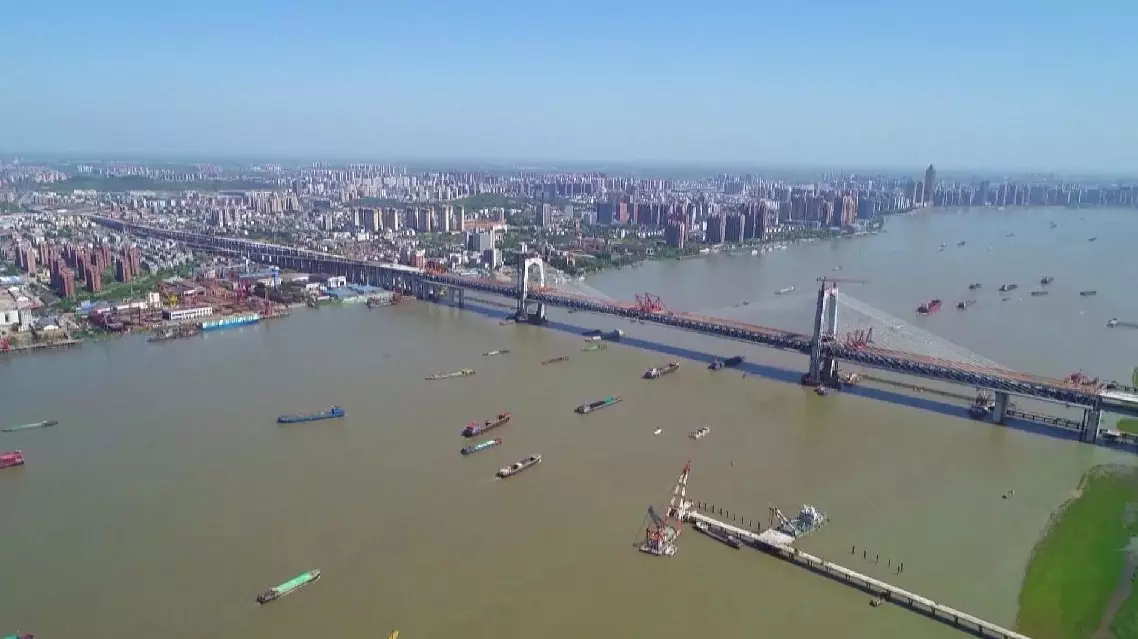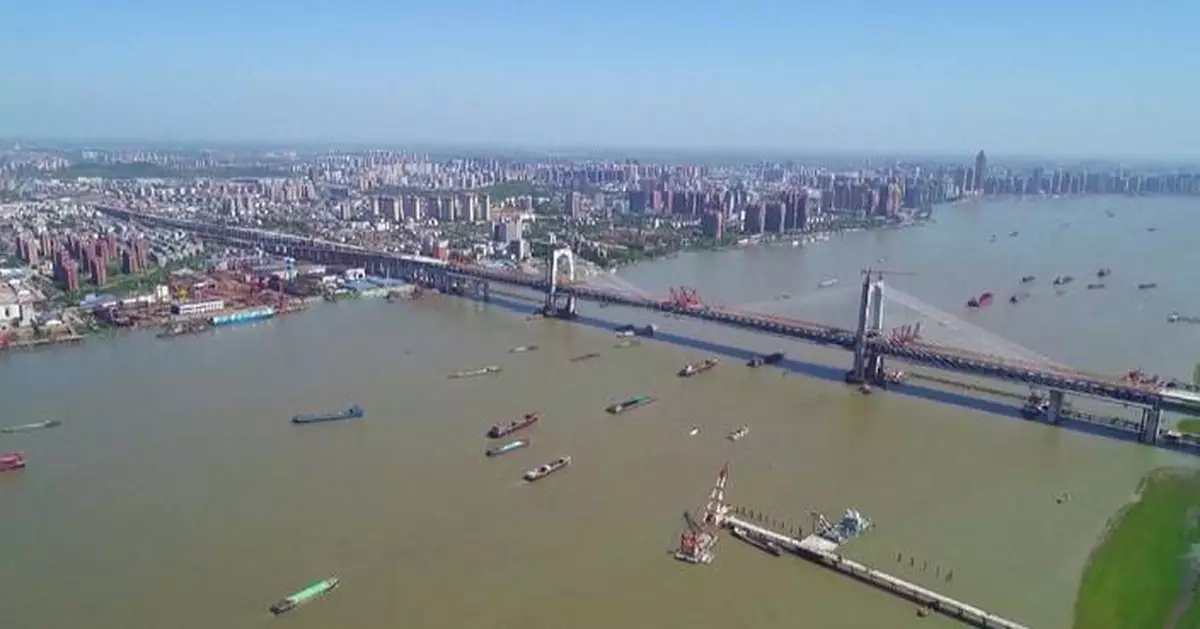Quzhou City in east China's Zhejiang Province has been succesful in actively developing itself into a hub port connecting four provinces to facilitate the growth and expansion of its "sweet potato economy," aiming to create a new development pattern for the industry.
The phrase "sweet potato economy" is a metaphor for Zhejiang's vibrant and dynamic economic development model, which symbolizes the province's ability to grow out from its roots and extend its influence beyond its borders, similar to how sweet potato vines reach out in all directions, allowing the tubers to grow even larger.
"The 'sweet potato economy' strategy in Zhejiang is part of President Xi Jinping's vision for the province. It involves 'jumping out of Zhejiang' and expanding the province's influence beyond its borders. This strategy is comparable to the way sweet potato vines extend in all directions, allowing the tubers to grow even larger,”said Wang Huijie, Secretary of Qujiang District Communist Party Committee in Quzhou City.
Qujiang District, located in western Zhejiang Province, has emerged as a leading example in development of the "sweet potato economy."
The Daluzhang port area of the Qujiang Harbor, which borders Zhejiang, Anhui, Fujian and Jiangxi provinces, with its time-honored history of being a transportation hub, has now transformed into an industrial agglomeration and logistics channel that connects inland areas within the Yangtze River Delta economic belt in east China.
"Quzhou has a popular saying: 'Gathering the West Zhejiang, connecting four provinces, and the whole country.’ With the establishment of the Quzhou Port, goods from Quzhou can now easily reach destinations such as Jining in the north, Chongqing in the west, and even be exported overseas from the east. Since its opening in 2020, the port has played a vital role in revitalizing inland shipping. To date, it has facilitated the transportation of an 10.5 million tons of goods, resulting in significant cost reductions for businesses in the area," said Lin Yingqi, General Manager of Transportation Investment Group Co., Ltd of Qujiang District in Quzhou City.
Specialty paper production is a cornerstone industry in Qujiang, and many enterprises in the area rely on imported pulp as their raw material.
The Quzhou Port has proven highly beneficial for these industries, significantly reducing logistics costs.
"On average, one ton of goods transported by water can save approximately 30 percent in transportation costs. This advantage is particularly beneficial for local leading paper enterprises like Xianhe Co., Ltd., as it allows them to expand their production capacity through more cost-effective transportation methods and to benefit both upstream and downstream enterprises across the region," Lin said.
The Qujiang Harbour in Quzhou City serves as a cost-effective gateway for international business, allowing for the import of paper, processing trade, and direct exports to the global market, while Xianhe aims to provide diverse solutions to customers leveraging these advantages, accorfing to Wang Yuzhe, Deputy General Manager, Xianhe Co., Ltd.
"By using the Qujiang Harbor, we can do a lot for international business, for example, that we can import pulp from other countries and do manufacturing here in Quzhou, which we call processing trade. And then after that we can export directly from the Qujiang Harbor to other countries, to the global market. So this is a very good way to save ost. As a global market leader of special paper, Xianhe provides a lot of different solutions to our customers. So I hope that we can provide more and more solutions to our customers, to our downstreams, by using the advantages of the Qujiang Harbor," said Wang Yuzhe.
Wang Huijie, Secretary of Qujiang District Communist Party Committee, expressed the district's commitment to develop the junction hub as a pivotal "bridgehead" for the four provinces, fostering regional integration, enhancing openness, and expanding the reach of the "sweet potato economy."
"We will further develop our junction hub, acting as a crucial 'bridgehead' for the four provinces. Our goal is to further integrate with the overall growth of the Yangtze River Delta region. Building upon our transportation infrastructure, which includes railways, highways, air routes, and waterways, we will continue to enhance regional cooperation and elevate our level of openness. We aim to facilitate the extension of the 'vines' of our 'sweet potato' economy in all direction," asid Wang Huijie.
By 2023, over 2 million businesspeople from Zhejiang have established a global presence, acting as the "vines" of the "sweet potato economy," reaching far and wide across the globe. They absorb sunshine and nutrients, contributing to the growth and prosperity of their hometown economy, making it bear even sweeter fruits.

East China's Quzhou city successful in building four-province hub port to drive economic growth






















































